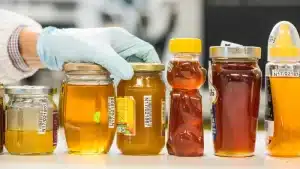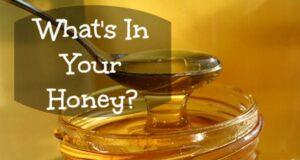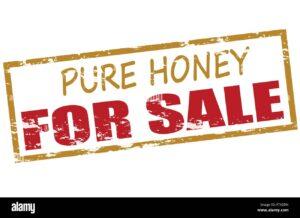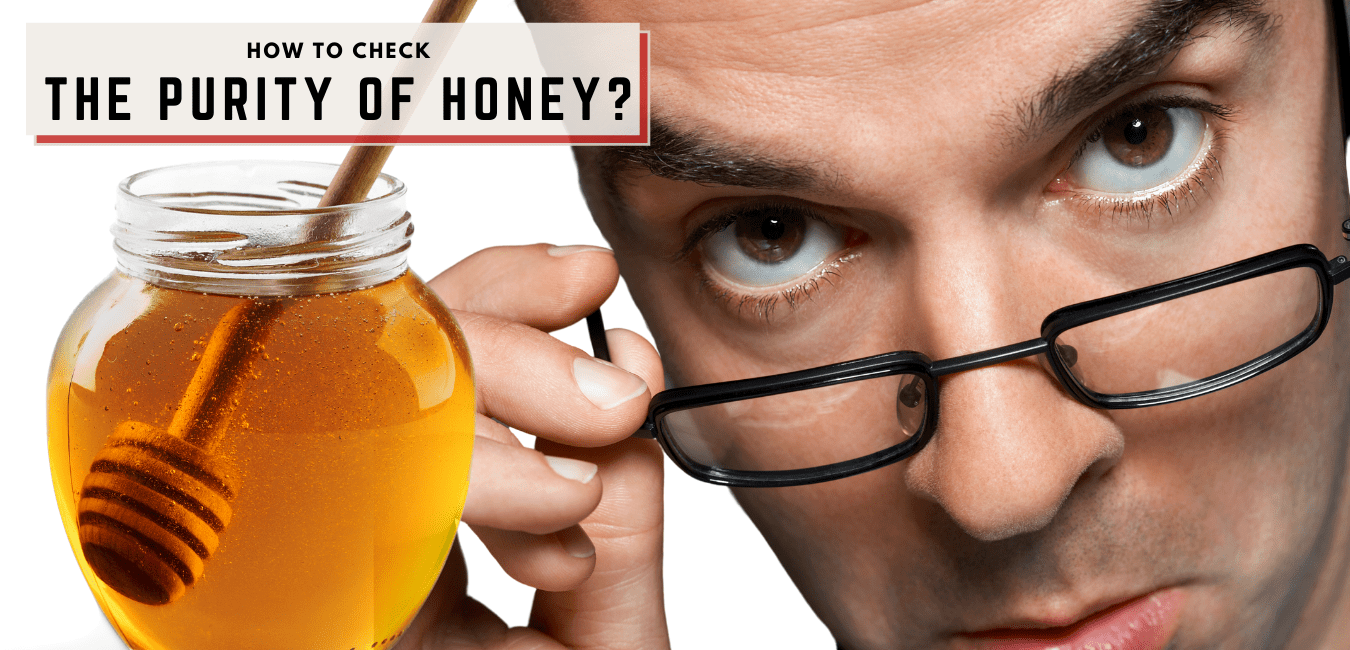The Truth About Grocery Store Honey
The FDA defines honey “as a thick, sweet, syrupy substance that bees make as food from the

nectar of flowers and store in honeycombs.” That definition is simple enough but you will be surprised to know that the majority of honey bought in the grocery store has been tampered with, rendering it a thick sweet syrup that is no longer honey.
Commercial suppliers have increased their bottom line by watering down the honey and adding other ingredients such as “High fructose corn syrup” and other sweeteners. Most of this “Honey” has been ultra-filtered which removes all of the pollen, nutrients, and beneficial properties of pure honey.
A study conducted by Food Safety News revealed that over 76% of honey from Kroger, Safeway, TOP Food and other grocery stores had the pollen filtered out. If the pollen is filtered out through processing, it can not be called honey. Additionally, 100% of the honey from drug stores such as CVS, Walgreen, Rite-Aid, and others had no pollen.
77% of the big box stores such as Walmart, Sam’s Club, Costco, etc., had no pollen and 100% of the small individual packets from fast food, Smuckers, and restaurants had not pollen.
Honey can not be traced to it’s original source without pollen. Honey that has been tampered with through processing, watering down and ultrafiltration has been found to contain heavy metals, illegal antibiotics, and other harmful chemicals and sweeteners. Much of the comes from China and Asia.
Read The Label

Pure honey will only have one ingredient listed in the ingredient list. If there is anything other than “Honey” listed, you are not buying real honey. If the label has any type of processing listed such as ultra-filtration, pasteurized or anything else, it is not honey. The FDA has specific requirements for honey labeling. But then, enforcement is another issue.
Honey Laundering
Heavy tariffs were imposed on Chinese companies for dumping fake honey in US markets, and for improper labeling. China began shipping their “Honey” to other countries such as Thailand and India, where it was relabeled as the country of origin, then shipped to the US. This is called “Honey Laundering”. Much of this honey has been found to contain toxins like lead and other heavy metals, as well as drugs like chloramphenicol, an antibiotic, according to a Department of Justice news release.
So in addition to the previous problems, it’s better not to buy your honey in a store at all. People who want real honey are more health conscious and do not want a mixture of corn or rice syrup, malt sweeteners, refined sugar and a pinch of honey.
Where to Buy Pure Honey
The best place to buy real honey is from your local beekeeper or farmer. You can discuss there bees and honey harvesting with them, ask about their label, and be confident you are buying the real deal. Honey is not crystal clear and if it is you shouldn’t buy it.

Honey comes from the comb and goes in to the bottle. Beekeepers will harvest the honey frames, run them through a spinner to extract the honey, and then through a screen. The purpose of the screen is to remove wax cuppings, a wing or leg. It does not remove the pollen and other nutrients. It is then bottled and labeled.
Florida, as well as most other states have specific guidelines for honey produced under the Cottage Food Law, and specify the information that must be contained on that label. This is what you are looking for.
You will often find Beekeepers at a local Farmer’s Market or Flea Market. You can also search for local beekeepers in your area, or look for a beekeeping group on Facebook or other social media. This will ensure you get real local honey and support the local beekeeper.
Lastly, pure local honey will cost more. Currently the price is $10 per pound. You may get it cheaper by buying more. Honey is sold by weight, not volume. So approximately 12 ounces is a pound.
Thanks for reading and support your local beekeeper!
“If the bee disappears from the surface of the Earth, man would have no more than four years left to live.”….. Albert Einstein

[…] Is Store Bought Honey Real? […]